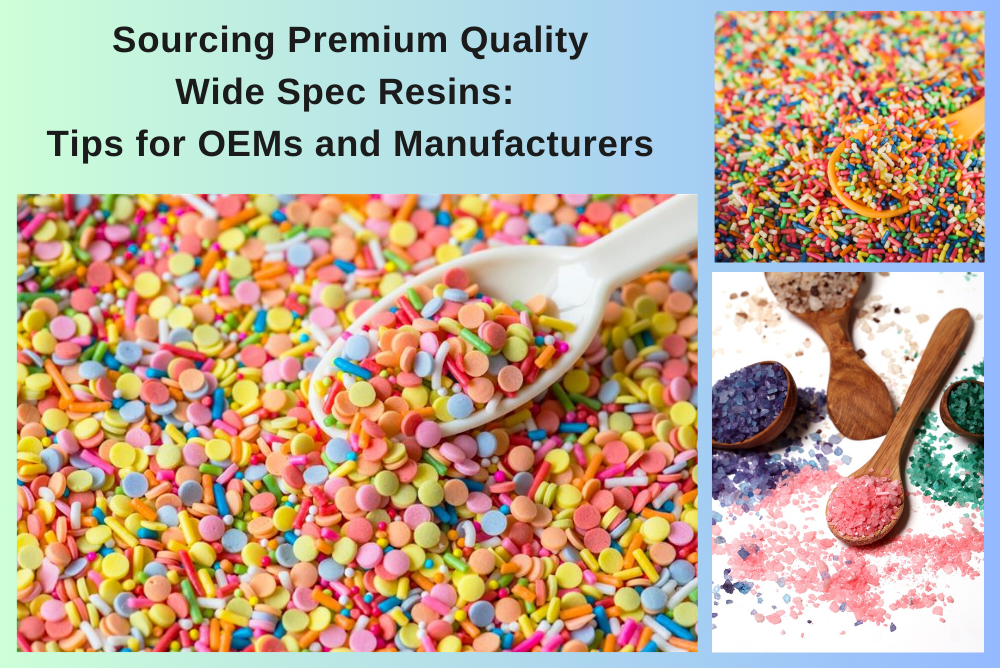Connecting rods are vital components of internal combustion engines, including Mitsubishi engines. It connects the piston to the crankshaft and is responsible for converting the reciprocating motion of the piston into the rotational motion of the crankshaft. Mitsubishi connecting rods are typically made from high-strength steel or forged aluminum alloys to withstand the high stresses and temperatures generated by the engine. They are designed to be lightweight yet durable, ensuring efficient engine performance and service life. Mitsubishi Connecting Rod,Auto Connecting Rod,Engine Connecting Rod,Engine Connecting Rods Wuhu Hangtian Automobile Connecting Rod Co., Ltd , https://www.htconrod.com
Wide spec or off-spec resins are byproducts of the virgin plastic polymerization process that fall out of the required specifications. These materials don't meet the standards for any primary plastic products, so they are typically purchased by wide spec resin suppliers, compounders, and manufacturers. They may have been affected by heat exposure or other factors, leading to altered physical and chemical properties. Despite this, wide spec resins can still be used in various applications. Plastic resin suppliers often sell them to OEMs at a lower cost than virgin plastics. This article explores the types, properties, and applications of wide spec resins.

**What Are Wide Spec Resins?**
Also known as off-grade resins, wide spec resins have broader specifications than the standard range. Depending on changes in properties like color, mechanical strength, or density, they can be classified as either good or bad wide spec resins. Visually, they might appear different from what is expected—such as being pale, discolored, or caramelized. Since these resins are byproducts of virgin resin production, they require no additional time or cost for manufacturing.
**Types, Properties, and Applications of Wide Spec Resins**
While off-grade resins aren’t strictly defined, their properties may differ slightly from standard ones depending on the type, such as ABS, acrylic, polycarbonate, polypropylene, and polyurethane. Here are some common examples:
- **ABS (Acrylonitrile Butadiene Styrene)**
- *Standard Properties*: A thermoplastic with high impact resistance, durability, and good electrical insulation. It's easy to weld and form using CNC machines or 3D printers.
- *Wide Spec*: May vary in color, density, or mechanical strength due to blending with other materials or structural changes.
- *Applications*: Used in computer peripherals, vehicle interiors, toy parts, and more.
- **Acrylic**
- *Standard Properties*: Known for its transparency and lightweight nature, it’s a popular glass substitute. It has good impact resistance and can withstand a wide temperature range.
- *Wide Spec*: May show opacity or altered tensile strength depending on processing.
- *Applications*: Used in partitions, lenses, displays, and furniture. Opaque versions are not suitable for transparent applications.
- **Polycarbonate (PC)**
- *Standard Properties*: Lightweight, durable, and transparent, PC is often used as an alternative to glass. It can block UV rays and is easily molded.
- *Wide Spec*: May have variations in transparency, density, or impact resistance due to improper formulation.
- *Applications*: Common in kitchenware, cups, and containers.
- **Polypropylene (PP)**
- *Standard Properties*: Low density and excellent heat resistance. It can be made soft or hard, opaque or transparent.
- *Wide Spec*: May differ in heat resistance or hardness due to chain structure changes during polymerization.
- *Applications*: Widely used in packaging, films, and consumer goods.
- **Polyurethane (PU)**
- *Standard Properties*: Flexible, durable, and capable of withstanding low temperatures and abrasion. It has a high elongation point and load-bearing capacity.
- *Wide Spec*: May exhibit off-spec molecular structures, affecting performance.
- *Applications*: Found in seals, gaskets, tubing, and sporting equipment.
**How to Choose the Right Wide Spec Resin**
Selecting the right wide spec resin depends on your specific application needs. Consider the following:
- Analyze your project requirements and compare them with the material's properties.
- Opt for wide spec resins if they meet your needs or request customizations.
- Check for key properties like density, melting point, temperature range, and chemical resistance.
- Ensure the material is safe and non-toxic.
- Confirm that any color changes are acceptable for your use case.
- Consider surface finish and texture requirements.
- For sensitive applications like food or healthcare, verify certifications such as FDA, RoHS, REACH, and NSF.
If you're an OEM producing large volumes of plastic parts, sourcing high-quality wide spec resins is essential. Look for reliable suppliers who can meet your specific needs. Mid Continent Plastics is a trusted name in engineering plastics, offering premium wide spec resins tailored to your application. With over 30 years of experience, they provide reliable solutions for all your resin needs.
[Contact Us](http://bsg-i.nbxc.com/blog/19dd8a735430767efb061bc4aeefc286.png)